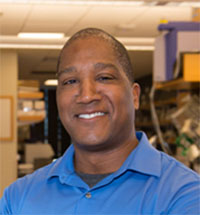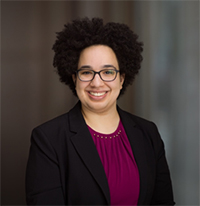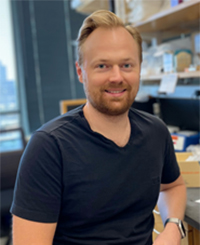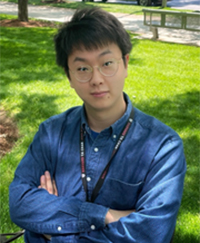| |
People |
|
|
|
| |
|
|
|
|
| |
 |
|
Darren Higgins, Ph.D.
Principal Investigator
Dr. Higgins is a Professor of Microbiology at Harvard Medical School. His laboratory at Harvard is currently focused on understanding fundamental host-pathogen interactions that lead to virulence and the development of protective immunity to intracellular bacterial pathogens. Dr. Higgins has served as an Editorial Board Member on several prominent journals in the field and has led research projects in collaboration with the New England Regional Center of Excellence for Biodefense and Emerging Infectious Diseases, Boston Children’s Hospital, and the Dana Farber Cancer Center. Dr. Higgins is also inventor on several patents and co-founded Genocea Biosciences, a company that aims to commercialize key breakthroughs in vaccine discovery and development with a focus on intracellular pathogens. Dr. Higgins holds a Ph.D. in Microbiology and Immunology from the University of Michigan Medical School and performed his postdoctoral studies at the University of Pennsylvania School of Medicine and University of California at Berkeley. |
|
| |
|
|
|
|
| |
 |
|
Bri Manning
PhD Student, Biological and Biomedical Sciences
Regulatory response of bacterial virulence factors to extracytosolic environments
Bacteria can sense their different niches and are able to adapt their metabolism or virulence accordingly to survive and conserve energy. Such regulatory mechanisms that can control the adaptability of bacterial gene expression can include transcription factors, non-coding RNAs, and others. Listeria monocytogenes is a facultative intracellular pathogen that can adapt to a broad spectrum of niches from soil to water and the human body. My research interest is to further decipher how bacterial (or host factors) can facilitate the regulation of L. monocytogenes virulence gene expression in extracytosolic environments. |
|
| |
|
|
|
|
| |
 |
|
Elizabeth Pérez
PhD Student, Biological and Biomedical Sciences
Host cell factors contributing to Listeria monocytogenes infection
The interactions between a pathogen and various human cellular components are critical in determining infection outcome. During infection, Listeria monocytogenes takes advantage of host cell factors to infiltrate, multiply intracellularly, and to directly spread cell-to-cell, disseminating rapidly throughout the body. On the contrary, other host factors are critical to host cell survival and defense from L. monocytogenes. My work is focused on host factors that have been observed to promote virulence or control infection by L. monocytogenes. The goal is to determine at what point in the infection process these host factors are playing critical roles and where in the cell they are functioning. |
|
| |
|
|
|
|
| |
 |
|
Eric Sumrall, PhD
Postdoctoral Fellow
Adaptation to intracellular infection by Listeria monocytogenes
The food-borne pathogen Listeria monocytogenes features the remarkable ability to survive in multiple environments, including inside of mammalian host cells. How L. monocytogenes manages the phenotypic switch necessary to be successful as a pathogen is not fully understood. A key focus of my research is therefore to further elucidate how L. monocytogenes recognizes and responds to the intracellular host cell environment to evade host defense mechanisms and establish infection. |
|
| |
|
|
|
|
| |
 |
|
He Sun, PhD
Postdoctoral Fellow
Molecular mechanisms of host defense and bacterial virulence factors that are critical for human infection
My research interest is to explore the molecular mechanisms of host defense and bacterial infection strategies that are critical for human infection, especially the identification of key factors that promote infection by multiple human pathogens, including Listeria, Shigella, Mycobacterium, and Chlamydia. Previous large-scale host genetic screens and bioinformatic analysis by the lab have identified several unknown host factors implicated for colonization, invasion, and cell-to-cell spread by multiple human pathogens. I am applying an interdisciplinary set of targeted approaches including CRISPR-Cas9 knockout technology, tissue culture infection models, knockout animals, biochemistry, and advanced microscopy to identify the underlying roles of these host factors during infection. This work will provide insights into the development of therapeutic strategies to control prevailing infectious diseases. |
|
| |
|
|
|
|
| |
|
|
|
 |
|